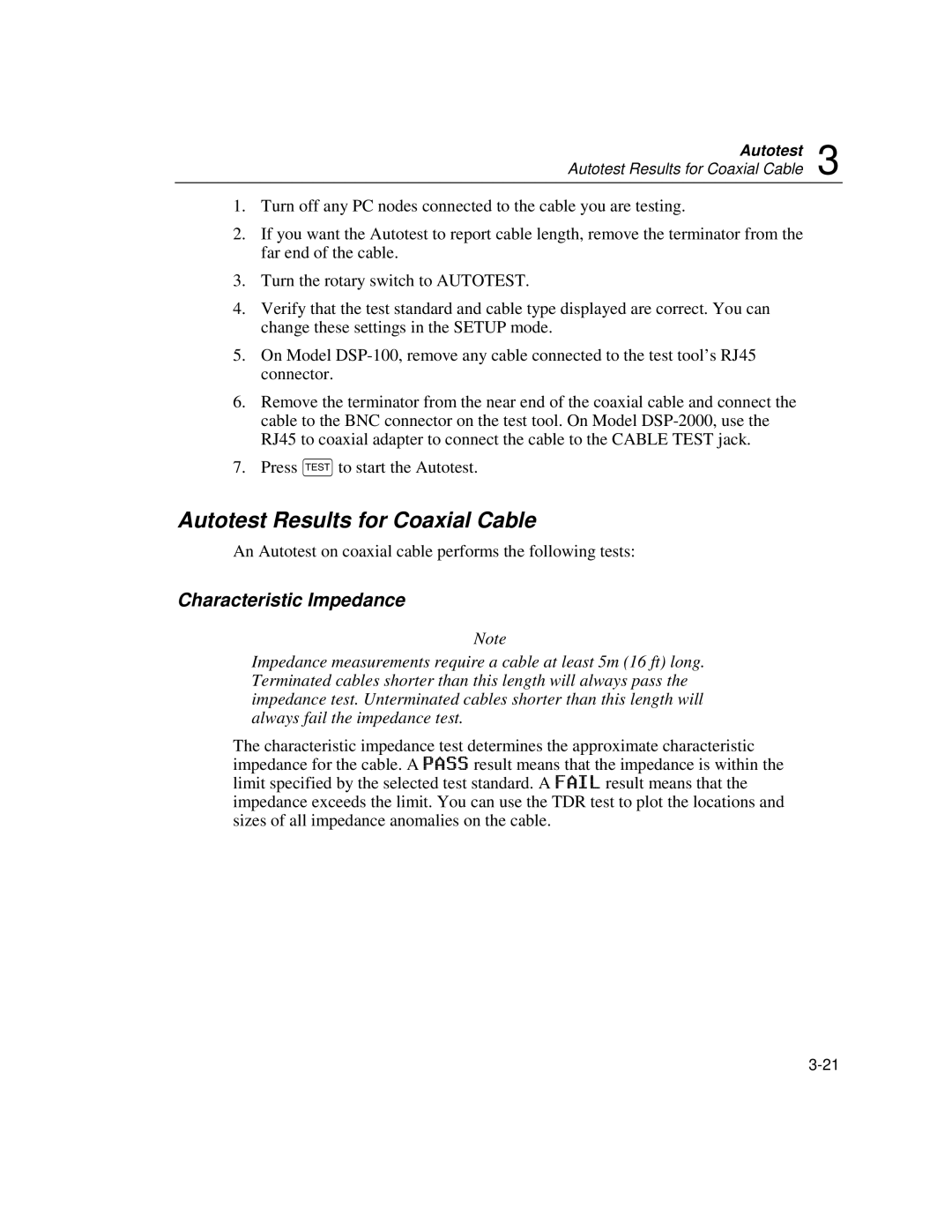Autotest 3
Autotest Results for Coaxial Cable
1.Turn off any PC nodes connected to the cable you are testing.
2.If you want the Autotest to report cable length, remove the terminator from the far end of the cable.
3.Turn the rotary switch to AUTOTEST.
4.Verify that the test standard and cable type displayed are correct. You can change these settings in the SETUP mode.
5.On Model
6.Remove the terminator from the near end of the coaxial cable and connect the cable to the BNC connector on the test tool. On Model
7.Press Tto start the Autotest.
Autotest Results for Coaxial Cable
An Autotest on coaxial cable performs the following tests:
Characteristic Impedance
Note
Impedance measurements require a cable at least 5m (16 ft) long. Terminated cables shorter than this length will always pass the impedance test. Unterminated cables shorter than this length will always fail the impedance test.
The characteristic impedance test determines the approximate characteristic impedance for the cable. A PASS result means that the impedance is within the limit specified by the selected test standard. A FAIL result means that the impedance exceeds the limit. You can use the TDR test to plot the locations and sizes of all impedance anomalies on the cable.
